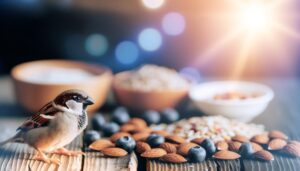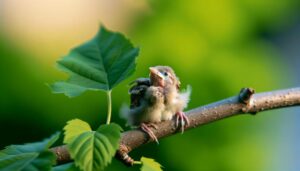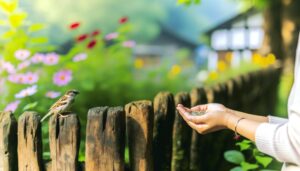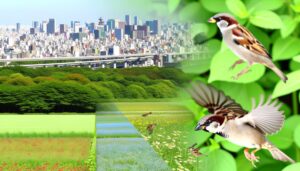How You Can Safely Feed Sesame Seeds to Sparrows
Feeding sesame seeds to sparrows offers necessary fatty acids, proteins, and antioxidants beneficial for their health. However, the high fat content can lead to obesity, and the small size poses a choking hazard.
Sparrows have a specialized digestive system that can efficiently process seeds, but an unbalanced diet may cause nutritional deficiencies. Alternative bird-friendly seeds like millet, sunflower seeds, and nyjer are preferable.
It is important to provide a varied diet to guarantee all necessary nutrients are met. Proper feeding practices mitigate risks and support sparrow health.
More detailed information on this topic follows.
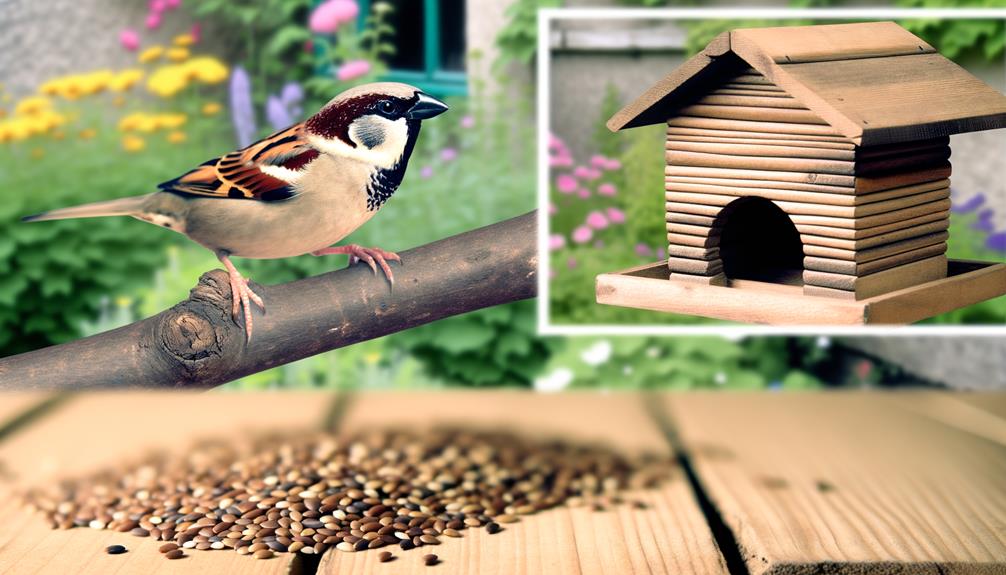
Key Takeaways
- Sparrows can eat sesame seeds, but they should be given in moderation due to their high fat content.
- Sesame seeds provide essential nutrients like calcium, magnesium, and protein beneficial for sparrow health.
- The small size of sesame seeds can pose a choking hazard, especially for younger sparrows.
- Overconsumption of sesame seeds might lead to nutritional imbalances and health issues in sparrows.
- A varied diet including millet, sunflower seeds, and other grains is crucial for sparrows' overall health.
Nutritional Benefits of Sesame Seeds
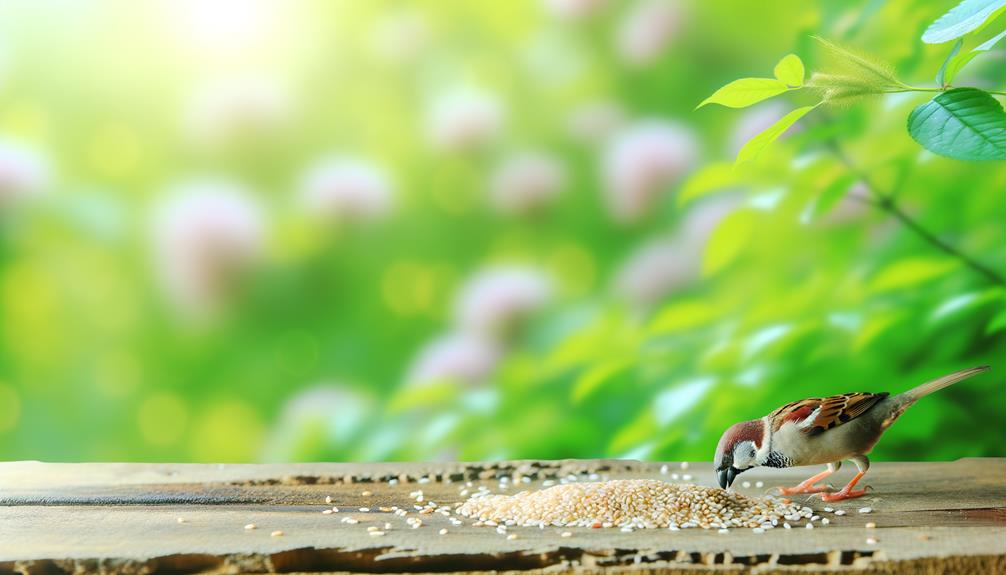
Sesame seeds offer a variety of nutritional benefits that can greatly enhance the health and well-being of sparrows. Rich in essential fatty acids, proteins, and various vitamins and minerals, these seeds provide a balanced dietary supplement.
Key nutrients include calcium, which supports bone health, and magnesium, vital for metabolic functions. The high protein content aids in muscle development and repair, while the presence of antioxidants like sesamol helps mitigate oxidative stress.
Additionally, sesame seeds contain fibers that can improve digestive health. The seeds' micronutrient profile, including zinc and selenium, further supports immune function. Therefore, incorporating sesame seeds into a sparrow's diet can contribute significantly to maintaining their overall health and vitality.
Risks of Feeding Sesame Seeds
While sesame seeds offer numerous nutritional benefits, it is important to also consider the potential risks associated with feeding them to sparrows.
First, sesame seeds have a relatively high fat content, which can lead to obesity and related health issues in sparrows if consumed in excess.
Additionally, the small size of the seeds could pose a choking hazard, particularly for younger or smaller birds.
Furthermore, sesame seeds lack certain essential nutrients required for a sparrow's balanced diet, potentially leading to nutritional deficiencies if they constitute a significant portion of the bird's food intake.
How Sparrows Digest Seeds
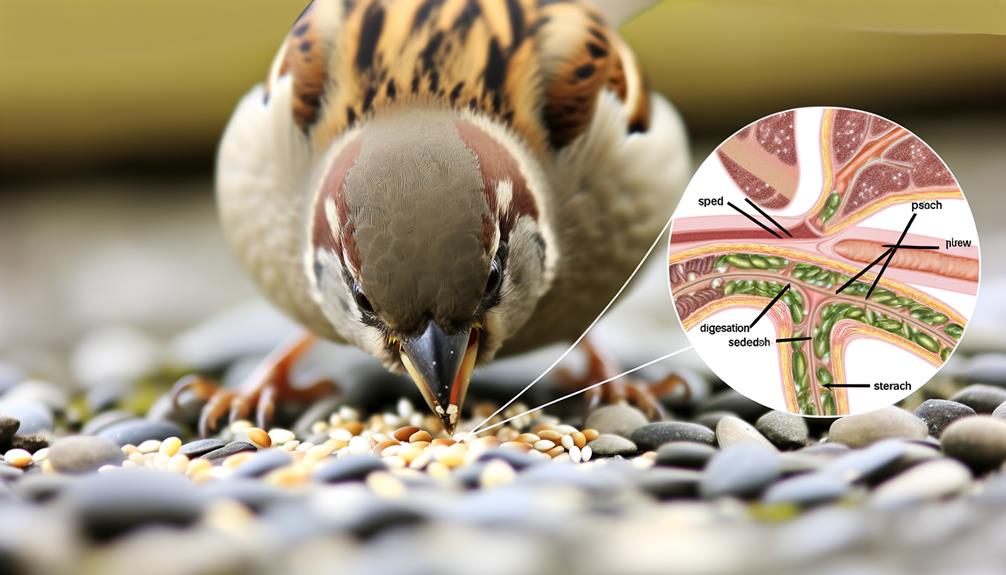
Understanding how sparrows digest seeds is fundamental to evaluating the appropriateness of sesame seeds in their diet. Sparrows possess a specialized digestive system designed to efficiently break down seeds. This process begins in the crop, where seeds are temporarily stored and softened. Next, the seeds move to the gizzard, a muscular organ that grinds the seeds with the aid of ingested grit.
| Digestive Stage | Function |
|---|---|
| Crop | Temporary storage and softening |
| Proventriculus | Secretes digestive enzymes |
| Gizzard | Mechanical grinding |
The proventriculus, or glandular stomach, secretes enzymes that further aid in breaking down the seed's outer shell. The efficiency of these stages determines how well sparrows can derive nutrients from different seeds, including sesame seeds.
Alternative Foods for Sparrows
Sparrows can benefit from a varied diet that includes alternative foods such as millet, sunflower seeds, and cracked corn, each offering distinct nutritional profiles.
A diversified diet guarantees that sparrows receive essential nutrients required for optimal health and vitality.
In addition to sesame seeds, the following foods can be beneficial:
- Millet: Rich in carbohydrates and easy to digest.
- Sunflower Seeds: High in protein and beneficial fats.
- Cracked Corn: Provides energy and is readily consumed by many bird species.
- Nyjer Seeds: Small seeds rich in oil, ideal for energy.
Understanding these alternatives helps in catering to the dietary needs of sparrows, ensuring their well-being and promoting their presence in various habitats.
Tips for Safe Bird Feeding
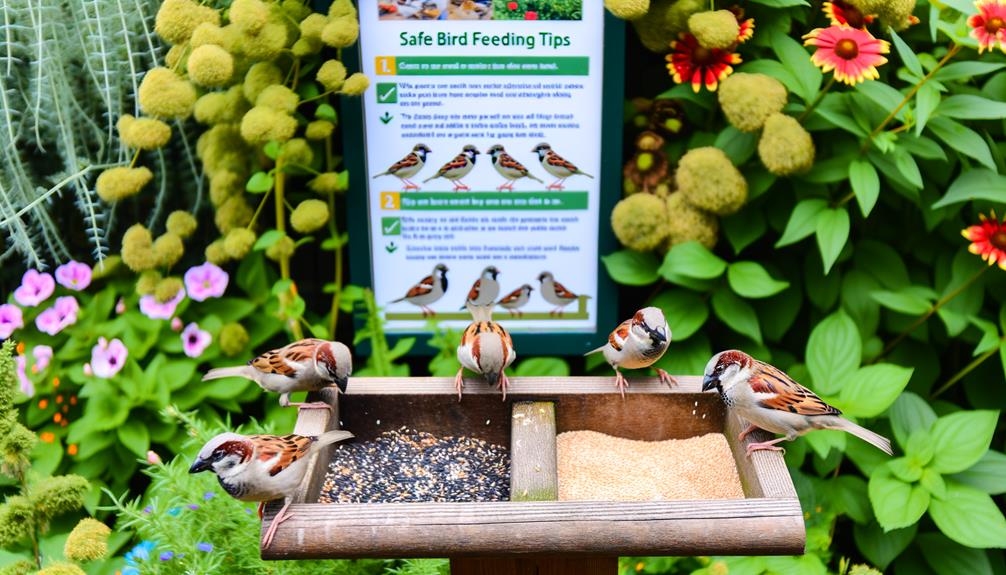
Ensuring the safety of bird feeding practices involves several key considerations to minimize risks to avian health.
First, always provide fresh, uncontaminated food; spoiled seeds can harbor harmful bacteria and fungi.
Additionally, avoid feeding birds foods high in salt, sugar, or artificial additives, as these can be detrimental to their health.
Regularly clean feeders to prevent the spread of diseases, using a solution of one part bleach to nine parts water.
Position feeders in safe locations away from predators and hazards.
Diversity in diet, including a mix of seeds, fruits, and insects, supports nutritional needs.
Monitoring bird behavior and health can also help detect early signs of issues, ensuring prompt intervention if necessary.
Conclusion
To sum up, while sesame seeds offer significant nutritional advantages, their potential risks make them a risky choice for feeding sparrows. The digestive physiology of these birds may not be ideally suited to process such seeds, posing potential health complications. Hence, alternative foods more aligned with sparrows' dietary requirements should be given priority.
Ensuring safe and suitable feeding practices aids in promoting a flourishing avian ecosystem, much like a well-coordinated symphony where each element contributes harmoniously to the whole.

